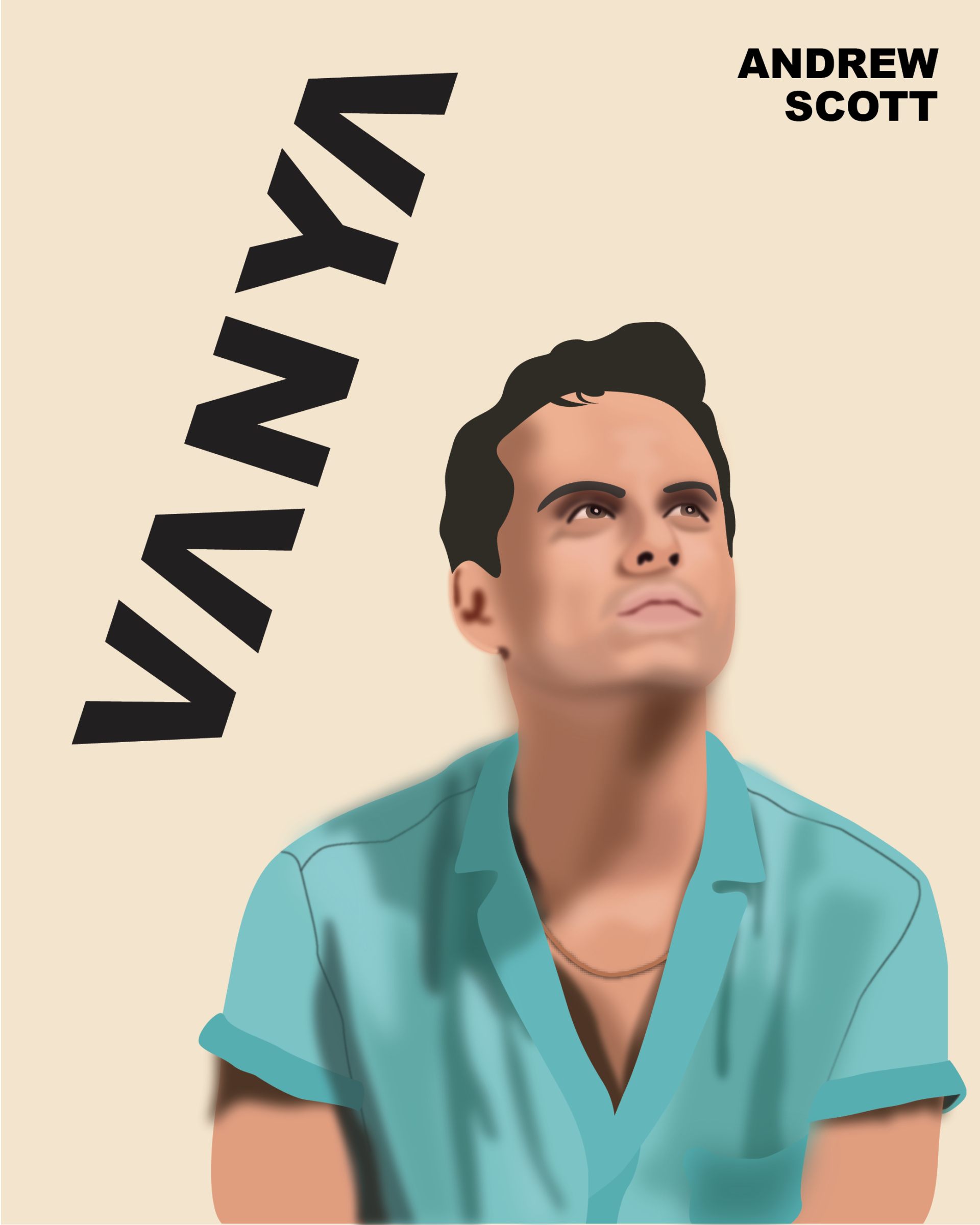Anton Chekhov’s “Uncle Vanya” has been adapted more times than one can count since its publication in 1897, but “Vanya” — this time performed by Andrew Scott shines dazzlingly above most.
The Irvine Barclay Theatre was packed to the brim with people eager to view a showing of Scott’s critically acclaimed production of “Vanya” on Jan. 26. The play explores themes of unrequited love, the feelings of unfulfilled potential and the struggles of a routine existence.
What sets Scott’s performance apart is writer Simon Stephens and director Sam Yates’ decision to write it as a one-man play — a risky choice for a play set with a high bar, given its many adaptations. Additionally, the play revolves around the interpersonal dynamics between eight different characters, all of whom, in this version, would naturally be portrayed by one.
Despite the tall order, Scott blew critics away with his precise and nuanced performance. Even with as many as six characters interacting with each other at once on stage, the audience is never confused about who Scott is currently portraying. He seamlessly slips between characters, utilizing accents, mannerisms and even signature props — fiddling with a necklace, wiping hands on a kitchen towel or donning an ever-lit cigarette — to help the audience follow who is speaking. Scott manages to do so without exaggeratedly obvious transitions between characters, but rather with subtlety, showing off his immense range.
The set, created by Rosanna Vize, also lends itself to the medium of a one-man play. A door frame placed in the center of the stage allows Scott to walk into it as one character and emerge a second later as a different one, without any confusion to the viewers. Just as characters have their own props, the audience comes to identify certain areas of the stage with characters — the kitchen associated with Sonia, and the swing associated with Helena. The stage is neither too minimalist or maximalist, allowing the setting to shine without adding or removing many props. This adds to the overall experience of the production, compelling the audience to use their imaginations.
Critics of the performance discuss whether there was a loss in emotional depth as a result of Scott portraying all of the characters on stage, and that it sometimes even gets confusing.
A review in The Guardian by Arifa Akbar discusses the misfires of the script, saying “it renders characters flimsy or broad … It is precisely because Scott is so exceptional that we want more than the actorly somersaults he performs. By its nature this playful dramatic experiment cannot allow him to penetrate any one part deeply or devastatingly enough for the tragedy to be truly felt by the end.”
However, most critics agree that Scott delivers a nuanced performance, even with the limitation of being a single performer. He manages to create palpable tension with himself portraying the illicit affair between two characters; in the penultimate scene of the play, he delivers an emotional monologue leaning on his own arm, and he manages to do it all without being kitschy. The production won multiple awards for “Best Revival” and “Best Actor.”
A review in TimeOut by Andrzej Lukowski showered the production with praise and dismissed common critiques, noting that he is “not sure to what extent crystal clarity is necessary: if you can understand the emotions, is anything else important?”
Lukowski continues to say that, while the play already existed, Stephens’ adaptation is “terse, tough and modern … it’s hard not to mostly come out without a sense of awe at Scott, another defining acting performance from a performer who doesn’t have any mode besides magical.”
You can watch a recording of “Vanya” either by subscribing to the National Theatre at Home or by finding a showing near you.
Ananya Kashyap is an Arts and Entertainment Staff Writer. She can be reached at ananyask@uci.edu.
Edited by Alaina Retodo

